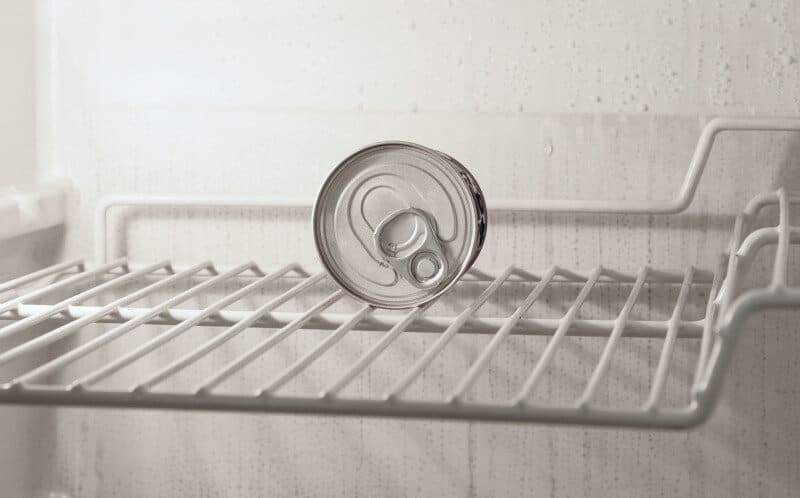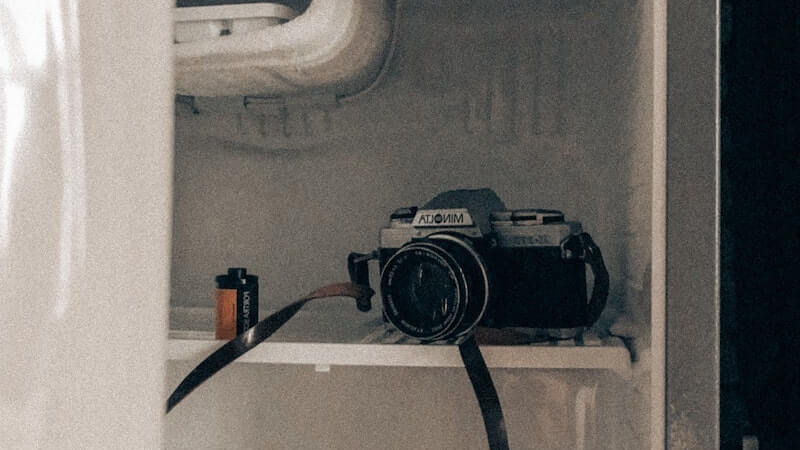In a world increasingly reliant on continuous power supply, unexpected blackouts can bring daily routines to a grinding halt. When the lights dim out and WiFi disconnects – what’s your plan? This blog post will pull you into the electrifying world of whole house generators, your essential backup when power systems fail. Learn about their intricate mechanics, explore various models, discover the importance of professional installation, and more. Whether it’s extreme weather knocking out power lines or routine maintenance from your local provider, ensure your home remains bright and powered up. Strap in for our ‘Ultimate Guide to Whole House Generators: Backup Power for Your Home’, and never be left in the dark again.
A whole house generator is a backup power system that can provide electricity to your entire home during a power outage. These generators are typically powered by natural gas or propane and can automatically turn on when the main power source is disrupted. Having a whole house generator can provide peace of mind knowing that your family will be safe, comfortable, and able to maintain normalcy during extended power outages. Additionally, it can protect your home from damage due to frozen pipes or other related issues that can occur without heat or electricity. To ensure you choose the right generator for your needs, it’s crucial to understand generator sizing and how it relates to your home’s power requirements.

“My experience and studies assert that the most critical factors while installing a whole house generator are understanding your power need, selecting the right generator size, and keeping in mind the local codes and regulations. Investing in a generator is an act of foresight; make sure you invest wisely.”
Gilbert Whitlock, Certified Electrical Engineer
Essential Features in Whole House Generators
When considering a whole house generator for backup power, it’s important to understand the essential features that will ensure reliable and efficient performance. These features play a crucial role in determining the suitability of a generator for your specific needs.
One of the primary considerations is the power output capacity of the generator. The size of your home and its energy requirements will determine the wattage capacity you need. It’s crucial to assess your power needs accurately to avoid overloading or underperforming generators. This assessment should take into account all essential appliances, HVAC systems, lighting, and any other electronics or devices you want to keep running during a power outage.
Additionally, fuel options are an essential consideration when selecting a whole house generator. The most common types of fuel used in these generators are propane (LP) and natural gas (NG). Each fuel option has its advantages and limitations.
Propane offers versatility as it can be stored and used even without access to natural gas lines. It provides long-term storage capability, making it ideal for areas prone to extended power outages or where natural gas may not be readily available. However, propane requires periodic refilling, which can be a logistical challenge during emergencies.
On the other hand, natural gas is generally reliable and readily accessible in most areas. It eliminates the need for refueling as it connects directly to your home’s existing gas supply. However, there may be situations where natural gas service might not be available or could experience interruptions during emergencies. In such cases, alternative fuel sources like propane or diesel can be used with appropriate conversion kits.
For instance, if you live near a major fault line prone to earthquakes, it might be wise to consider a dual-fuel generator that can run on both propane and natural gas. This provides added flexibility and ensures that you have backup options even if one fuel source becomes unavailable.
Choosing between propane and natural gas largely depends on factors such as fuel availability, local regulations, and personal preferences. It’s important to weigh these factors carefully and determine which fuel option aligns best with your specific circumstances.
It’s also worth noting that in recent years, whole house generators have become more technologically advanced, incorporating features like automatic transfer switches and Wi-Fi connectivity. These advancements not only improve functionality but also help monitor standby power consumption, ensuring efficient operation during outages.
Now that we have discussed some essential features of whole house generators, let’s explore in detail the power requirement considerations and the various fuel options available.
Power Requirement and Fuel Options
Understanding your power requirements is crucial when selecting a whole house generator. Determining the wattage capacity you need involves evaluating the electrical demands of your home during a power outage.
Start by identifying all critical appliances and systems you want to keep powered during an outage. This may include essential lights, refrigerators, HVAC systems, well pumps, security systems, sump pumps, and medical equipment. Consult the user manuals or labels on these devices to determine their wattage requirements.
Keep in mind that certain appliances or systems may have higher electrical surge requirements when starting up. Therefore, it’s important to consider both running watts and starting watts when calculating your generator’s capacity.
Once you have a clear understanding of your power needs, it’s time to select the appropriate fuel option for your generator. As previously mentioned, propane and natural gas are the most common choices. The decision typically depends on factors such as availability, convenience, and any regulatory restrictions in your area.
Consider whether you have access to a readily available natural gas supply or if propane would be a more suitable option. Evaluate aspects like storage capabilities for propane tanks and refueling logistics during emergencies. Dual-fuel generators provide added flexibility by allowing you to switch between propane and natural gas based on availability or personal preference.
By carefully assessing your power requirements and considering the advantages and limitations of different fuel options, you can make an informed decision when choosing a whole house generator that meets your specific needs. Keep in mind that a generator can power various systems in your home, including your tankless water heater, ensuring hot water even during power outages.
Automatic Transfer Switches and Wi-Fi Connectivity
When it comes to whole house generators, having an automatic transfer switch (ATS) and Wi-Fi connectivity can greatly enhance their functionality and convenience. An automatic transfer switch is a critical component that ensures seamless power transfer from the main utility supply to the generator during a power outage. It acts as a mediator between the two power sources, monitoring the electrical flow and automatically switching to generator power when the utility supply fails. Once the utility power is restored, the ATS transfers back to the grid and shuts down the generator.
Wi-Fi connectivity, on the other hand, allows homeowners to monitor and control their whole house generator remotely via a smartphone or computer. This feature provides peace of mind by enabling users to check the generator’s status, start or stop it, and receive notifications about any issues or maintenance requirements. With Wi-Fi connectivity, you can have real-time access to crucial information about your generator from anywhere in the world.
Imagine being on vacation thousands of miles away when a severe storm hits your neighborhood, causing a power outage. Thanks to an automatic transfer switch and Wi-Fi connectivity, you receive an alert on your phone notifying you of the power loss. From your hotel room, you remotely start your whole house generator using a mobile app and ensure that essential appliances like refrigerators and heating systems continue running until power is restored.
The combination of an automatic transfer switch and Wi-Fi connectivity empowers homeowners with greater control over their backup power system. Whether you’re at home or away, you can rest assured knowing that your whole house generator will activate automatically during an outage, keeping your household running smoothly.
- According to a market research report by Grand View Research (2021), the global whole house generator market size was worth $1.79 billion in 2020 and it is projected to grow at a compound annual growth rate (CAGR) of 5.4% from 2021 to 2028.
- The Guardian line of Generac, particularly the 22kW model, has consistently been the best-selling whole-house generator across various retail platforms as per analysis data from Generator Advisor in 2023.
- As per Energy Sage’s data of 2023, roughly 60% of homeowners prefer whole house generators that have advanced features like Wi-Fi connectivity.
- Whole house generators with automatic transfer switches and Wi-Fi connectivity offer enhanced functionality and convenience. An automatic transfer switch ensures seamless power transfer from the main utility supply to the generator during a power outage, while Wi-Fi connectivity allows homeowners to monitor and control their generator remotely via a smartphone or computer. This combination empowers homeowners with greater control over their backup power system and provides peace of mind knowing that essential appliances will continue running during outages, whether they are at home or away.
Different Models of Whole House Generators
Generac offers a range of home backup generators under their Guardian Series, ensuring there’s an option suitable for every homeowner’s needs. These models provide various kilowatt options, including 7kW – 11kW, 11kW – 15kW, and 16kW – 24kW, allowing you to select the generator size most appropriate for your power requirements.
Let’s take a closer look at some specific models within the Guardian Series:
- Guardian 10kW Home Backup Generator WiFi Enabled: This model offers a compact design and reliable backup power for essential circuits or small homes during outages. With its Wi-Fi connectivity, you can conveniently monitor and control the generator remotely.
- Guardian 14kW Home Backup Generator WiFi Enabled: Designed for larger homes, this generator provides robust power supply to meet increased demand during emergencies. It features an aluminum enclosure, ensuring long-lasting durability and protection against the elements.
- Guardian 18kW Home Backup Generator WiFi Enabled: Offering substantial power output, this model is suitable for medium to large-sized homes. With its True Power Technology, it delivers clean and stable electricity to protect sensitive electronics in your household.
- Guardian 22kW Home Backup Generator WiFi Enabled: Ideal for larger homes with high energy demands, this generator ensures that all your essential circuits receive uninterrupted power during outages. Its durable construction and advanced features make it a reliable option to keep your home running smoothly.
- Guardian 24kW Home Backup Generator WiFi Enabled: The Guardian 24kW provides substantial power output for large residences or properties with multiple buildings. Equipped with QuietTest self-test functionality, it runs quieter during its weekly exercise cycle while testing its own system for optimal performance.
Each of these models may also come with transfer switches or whole house switches as part of the package, depending on your specific needs. However, it’s important to note that prices for the generators do not include transfer switch installation or taxes and shipping. To get more detailed information about prices, additional features, and customer reviews, you can visit the Generac website.
Guardian Whole House Generators
When it comes to whole house generators, the Guardian brand has established itself as a trusted and reliable option for homeowners in need of backup power. With an array of models to choose from, Guardian whole house generators are designed to provide peace of mind during unexpected power outages.
One key feature that sets Guardian generators apart is their automatic transfer switch (ATS). This device ensures a seamless transition from utility power to generator power in the event of an outage. The ATS constantly monitors the electrical supply and detects any disruptions, automatically activating the generator within seconds. This means that even if you’re away from home during a blackout, you can rest assured that your essential appliances and systems will continue running smoothly.
Imagine you’re in the middle of cooking a meal for your family when suddenly, the power goes out. With a Guardian whole house generator, there’s no need to panic. The ATS would detect the outage and quickly start the generator, allowing you to continue cooking without missing a beat. Your family can enjoy a hot meal while your neighbors fumble in darkness.
In addition to their reliable performance, Guardian generators boast impressive fuel efficiency. They are equipped with advanced features like load management, which helps distribute electricity evenly across appliances and prevents overload situations. By optimizing power consumption, you not only save on fuel costs but also extend the lifespan of your generator.
Another notable aspect of Guardian generators is their commitment to user convenience. Many models come with remote monitoring capabilities, allowing homeowners to check on their generator’s status from anywhere using a computer or mobile device. This feature provides valuable insights into maintenance needs, fuel levels, and any potential issues that may require attention.
In terms of noise level, Guardian whole house generators offer relatively quiet operation thanks to advanced sound-dampening technology. This means that even during extended power outages or overnight use, the noise won’t disrupt sleep or cause annoyance for you or your neighbors.
Now that we’ve explored the features and benefits of Guardian whole house generators, let’s turn our attention to another leading brand in the market – KOHLER.
KOHLER Whole House Generators
KOHLER is a well-known name in the field of power generation, and their whole house generators are no exception. Renowned for their durability and performance, KOHLER generators offer homeowners reliable backup power during emergencies.
One standout feature of KOHLER whole house generators is their powerful engines. Equipped with high-quality engines, these generators provide robust and consistent power output, ensuring that your essential appliances and systems continue running without interruption. Whether it’s keeping your lights on, powering your HVAC system, or maintaining the operation of critical medical equipment, KOHLER generators have you covered.
Not only does KOHLER prioritize performance, but they also focus on ease of use. Their generators come with an electric start feature, eliminating the need for manual cranking. With just a push of a button, you can kickstart your generator effortlessly.
Durability is another key aspect where KOHLER shines. Their generators are built to withstand harsh weather conditions and operate reliably year after year. With proper maintenance and regular servicing, a KOHLER whole house generator can become a long-term investment that provides peace of mind during any blackout situation.
Let’s imagine you live in an area prone to severe storms and frequent power outages. Investing in a KOHLER generator means you’re prepared for whatever Mother Nature throws at you. Even if all your neighbors are left in darkness, you can carry on with your daily routine as if nothing happened.
Additionally, KOHLER offers excellent customer support and extended warranty options. This means that even after purchasing your generator, you can rely on their expertise to handle any issues that may arise. The combination of reliable performance, user-friendly features, and reliable customer support makes KOHLER whole house generators a top choice for homeowners seeking peace of mind.
Making Your Investment Worthwhile
Investing in a whole house generator is a significant decision that requires careful consideration. You want to ensure that your investment is worthwhile, providing you with reliable backup power during emergencies and peace of mind. Let’s explore some key factors to make the most of your investment.
Firstly, determining your power needs is crucial. Take stock of all essential appliances and systems you would like to power during an outage. Consider not just immediate necessities like lights and refrigeration but also heating or cooling systems, medical devices, and communication equipment. This comprehensive assessment will guide you in selecting the appropriate generator size for your home.
Next, consider the frequency of power outages in your area. If you typically experience frequent and prolonged blackouts, a whole house generator might be well worth the investment. On the other hand, if power disruptions are infrequent or limited to short durations, alternative backup solutions like portable generators or battery-powered options may suffice.
Another aspect to evaluate is the lifespan of the generator. Quality brands and models often come with extended warranties, ensuring reliable performance for years to come. Understanding how long you can expect your generator to last helps determine its long-term value.
For instance, let’s say you live in an area prone to severe storms with frequent power outages that can last days on end. In this case, investing in a high-quality whole house generator becomes a clear choice as it guarantees uninterrupted power supply throughout such trying times.
Lastly, consider the technology and features incorporated into modern whole house generators. Advancements such as Wi-Fi connectivity provide convenience by allowing remote monitoring and control of the system. Some generators even conduct regular self-tests to ensure optimal readiness for any emergency situation that may arise.
By carefully assessing your power needs, evaluating the frequency of outages in your area, considering the lifespan of the generator, and embracing technological advancements, you can ensure that your investment in a whole house generator is truly worthwhile.
Now that we have discussed how to make the most of your investment, let’s shift our focus to the importance of expert installation and maintenance for a reliable and efficient whole house generator system.
Expert Installation and Maintenance
When it comes to whole house generators, professional installation and ongoing maintenance play a pivotal role in ensuring their effectiveness and longevity. While it may be tempting to handle the installation yourself or hire an unqualified individual to save costs, this approach can lead to potential dangers and performance issues. Here’s why expert installation and regular maintenance are vital.
- Safety and Compliance: Professional installers are well-versed in local building codes and safety regulations concerning generator installations. They will ensure that the system is correctly installed with proper ventilation, fuel connections, and electrical wiring. This not only ensures operational safety but also keeps you compliant with local regulations.
- Optimal Performance: Expert installers have the knowledge and experience necessary to position and connect the generator correctly for optimal performance. They will assess factors such as noise levels, airflow, and proximity to flammable materials, ensuring efficient operation while minimizing disturbances.
- System Reliability: Skilled technicians can test the functionality of your generator during installation, making sure that all components work seamlessly together. This thorough assessment prevents any potential malfunctions or breakdowns when you need the generator most – during power outages.
- Routine Maintenance: Regular maintenance by professionals ensures that your whole house generator remains in top-notch condition. From inspecting fuel lines and connections to checking battery health and conducting oil changes, trained technicians identify any issues early on, preventing major problems down the line.
For example, imagine relying on a self-installed generator during an unexpected outage only to find that it fails to start due to improper wiring or fuel supply issues. The frustration and inconvenience could have been avoided if the unit had been installed and maintained by a qualified professional.
By investing in expert installation and scheduling routine maintenance, you not only guarantee the safe and optimal functioning of your generator but also extend its lifespan and protect your overall investment in backup power.
Beyond Generators: Exploring Alternatives
While whole house generators are a reliable solution for backup power, it’s essential to consider alternative options that may better suit your needs and circumstances. Two such alternatives worth exploring are Tri-Fuel Generators and Solar Systems with Battery Storage. These alternatives offer unique features that can provide additional power options and potentially reduce reliance on traditional fuel sources.
Tri-Fuel Generators, as the name suggests, have the ability to run on three different fuel sources – gasoline, propane, and natural gas. The versatility of these generators allows you to adapt to various situations and fuel availability. For example, during a power outage, you might opt for the readily available gasoline as the primary fuel source. However, if gasoline becomes scarce or unavailable in an emergency situation, you can easily switch to propane or natural gas if those supplies are still accessible.
Pros of Tri-Fuel Generators |
Cons of Tri-Fuel Generators |
|---|---|
1. Versatility: Multiple fuel options provide flexibility in fuel availability. |
1. Complexity: Tri-fuel generators can be more complex to operate and maintain compared to standard generators. |
2. Independence: With multiple fuel options, you’re less likely to face interruptions in power supply during emergencies. |
2. Higher Cost: Tri-fuel generators generally come at a higher price point than single-fuel generators. |
Let’s consider an example to illustrate this further. Imagine you live in an area prone to storms where gasoline supplies often become scarce during these times. By having a tri-fuel generator, you can easily switch to propane or natural gas as an alternative without worrying about running out of power in critical situations.
Another alternative worth considering is Solar Systems with Battery Storage. As renewable energy gains traction, solar systems have become more viable for powering homes during both sunny days and power outages. When paired with battery storage, solar systems can store excess energy generated during the day and use it when the sun isn’t shining or during emergencies.
Think of solar systems with battery storage as a well-stocked pantry. During times when the sun is abundant, you’re stocking up on energy just like you would stock up your pantry with food. And when clouds roll in or during a blackout, you can rely on that stored energy to power your home, just like relying on stocked food in your pantry during lean times.
For instance, if you live in an area that receives ample sunlight and want a sustainable and long-term solution for backup power, investing in a solar system with battery storage could provide independence from traditional fuel sources and potentially reduce long-term costs.
These alternative options offer unique advantages based on individual circumstances and priorities. While tri-fuel generators provide versatility and a sense of security in fuel availability, solar systems with battery storage offer sustainability and a reduced reliance on conventional fuels. Ultimately, the decision between whole house generators, tri-fuel generators, or solar systems with battery storage depends on factors such as budget, location, maintenance requirements, and personal preferences.
Now that we have explored alternatives to traditional whole house generators let’s dive into the features, benefits, and considerations when it comes to Tri-Fuel Generators and Solar Systems with Battery Storage.
Tri-Fuel Generators and Solar Systems with Battery Storage
Both Tri-Fuel Generators and Solar Systems with Battery Storage offer unique benefits for homeowners seeking backup power solutions.
Tri-Fuel Generators provide versatility by allowing you to choose from different fuel options based on availability and preference. With the ability to run on gasoline, propane, or natural gas, these generators ensure your home remains powered even when one fuel source becomes scarce or unavailable. However, they may come at a higher cost and require more complex operation and maintenance.
On the other hand, Solar Systems with Battery Storage harness the power of renewable energy to provide a sustainable and potentially cost-effective solution. These systems generate electricity using solar panels, store excess energy in batteries, and can power your home when the sun isn’t shining or during emergencies. For those interested in energy-efficient alternatives, consider learning about how heat pumps work as they can complement your backup power system and reduce overall energy consumption. By relying on stored energy, you can reduce your dependence on traditional fuel sources and take advantage of sustainable power.
When considering Tri-Fuel Generators or Solar Systems with Battery Storage, it’s important to weigh factors such as budget, availability of fuels or sunlight, location, and individual power needs. Each option has its own set of advantages and considerations that should align with your specific requirements.





When a storm knocked out power in our neighborhood for three straight days, it was our whole house generator that kept us from shivering in the dark, a life-saver, truly.
Having a backup generator is indeed a game changer, but I have found that coupling it with a renewable energy source is not only eco-friendly but helps in long term cost savings.
When I retired, one of the first projects I tackled was installing a whole house generator in my home down on the bayou. We get storms that can knock out power for weeks, and having an efficient, reliable generator made the difference between mild inconvenience and crisis for me. I love that Reuben mentioned coupling it with a renewable energy source, I did the same with solar panels, and it has indeed saved me immensely with long-term costs.
Having lived in rural Alaska, where power outages can last for days in winter, investing in a whole house generator was one of my smarter decisions. The feeling of having light and warmth even during monstrous snowstorms is satisfying beyond words.
I couldn’t agree more with Theo’s sentiment about the satisfaction deriving from having a reliable generator during unpredictable weather. From my perspective as a retired power engineer who has lived off-grid for over a decade, a well-installed and maintained whole house generator becomes your best friend during debilitating snowstorms or sudden blackouts, ensuring you’re not left fumbling in the dark.
Living in an area plagued by regular blackouts, I remember feeling helpless during freezing winters when our little electric heater would give up due to power failure. Purchasing a reliable whole-house generator soon became non-negotiable for me, and ever since it’s been like night and day – literally!
Raphael Fyodor, whole house generators are indeed a game changer for homes frequently affected by power outages, especially during critical weather conditions. Regular maintenance is crucial to ensure their longevity and effectiveness.
I agree with your point, Raphael. However, I’d also add that selecting right model based on one’s needs should always be primary even before pondering about regular maintenance. Not all generators are created equal – knowing your power demands, standing by wattage or run time, are all critical before making a purchase.